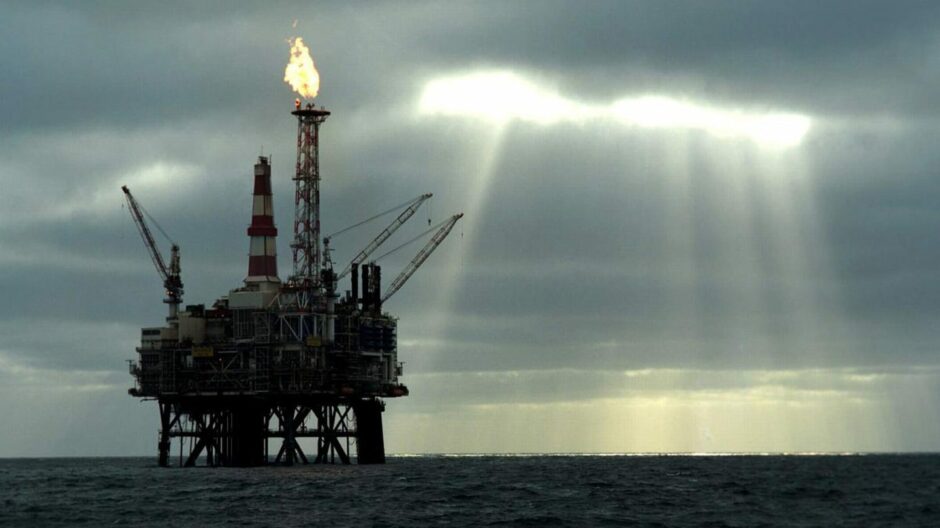
The North Sea’s oil and gas regulator has fined a trio of operators as it vows to “crack down” on behaviour that undermines energy security and transition.
Operators EnQuest, Spirit Energy and Equinor were handed the penalties for issues linked to historic emissions violations and over-production.
EnQuest (LON:ENQ) was slapped with what is believed to be the largest fine issued by the North Sea Transition Authority (NSTA) to date, and must now stump up £150,000 for flaring an excess 262 tonnes of gas on its Magnus field.
The activity, which occurred between 30 November and 1 December 2021, was conducted despite EnQuest knowing it did not have the necessary consent in place, the regulator stated.
Norway’s Equinor (OSLO:EQNR) was fined by the NSTA £65,000 for flaring at least 348 tonnes of CO2 above the amount permitted on its Barnacle Field between June and November 2020 – though notably the regulator made clear was an “administrative” issue.
Equinor uses an allocation model to measure flaring volumes for the Barnacle Field, which straddles the UK/Norwegian border, as output from the field is mixed with oil and gas from other assets and processed on the Statfjord B platform in Norwegian waters.
The exceedance of its UK flare consent on Barnacle did not therefore result in an overall increase of CO2 emissions from Statfjord B during the period.
A spokesperson for Equinor added: “In 2020, Equinor became aware that it needed to log flaring allocations in the UK, in addition to Norway. The flaring on Statfjord was within Norwegian permits, but technically, the field was operating outside the UK flaring consent for a period of four months due to the missing logs.
“Equinor promptly reported the error to the NSTA and adjusted reporting protocols in response.”
The NSTA acknowledged this was in essence “an administrative breach”, but nonetheless found the operator to have contravened its UK flare consent over the four months in question.
In addition, Spirit Energy was fined £50,000 for exceeding its maximum allowed production volumes from two fields over a period of three years – the Rhyl field between 2018-20 and Ceres between 2019-20.
The NSTA said that producing too much oil and gas could reduce overall long-term production from a reservoir, potentially undercutting the UK’s strategic security of supply.
“It is vital that when an operator wants to raise production it applies for a new consent so that its new plan can be assessed,” the agency added.
Operators reviewing
In response to the sanctions, a spokesperson for EnQuest said: “The NSTA recognised that EnQuest made contact promptly and maintained a constructive dialogue over the course of the incident.
“EnQuest took immediate steps to shut production down on 1 December 2021 until authority to restart by the NSTA was received in writing on 3 December 2021. The regulator also recognised that the Group had fully cooperated with the enquiry and investigation that followed.
“The company also conducted its own internal review to determine the cause of the failure and to prevent any future failure to comply.
“Notwithstanding the above, EnQuest accepts the NSTA’s sanction and will meet its obligations to pay the financial penalty as required by the regulator.”
A spokesperson for Spirit said the company “is committed to operating in a socially and environmentally responsible way and takes any non-compliance in this regard seriously.
“After identifying the circumstances which gave rise to this sanction, Spirit reported them to the NSTA and fully co-operated with their investigation. Spirit also conducted its own separate internal review.
“Both investigations have now concluded, with Spirit implementing all resulting recommendations with a view to ensuring its future compliance with production consents.”
The regulator said all the operators “cooperated fully” with its investigations, conducted their own internal reviews and have taken steps to avoid repeats of these breaches.
Firms ‘must follow’ process
The NSTA said its guidance aims to eliminate unnecessary or wasteful flaring and venting of gas, in line with a central pillar of its strategy and the wider mandate for BEIS to meet the UK’s net zero target.
It added that operators such as EnQuest and Equinor must follow a clear process to apply for consent to flare or vent gas, but noted progress across the basin has been “encouraging”
Earlier this year the regulator confirmed greenhouse gas emissions fell to 14.3 million tonnes of CO2 equivalent in 2021 – an overall reduction of 21.5% since 2018.
It said operators must make their practices and any associated emissions should be reduced “as far as reasonable in the circumstances,” with the goal of reaching zero routine flaring and venting by 2030.
Jane de Lozey, NSTA Director of Regulation, said: “The NSTA is committed to supporting the UK’s energy security and lowering greenhouse gas emissions, including through the use of our robust consenting procedures, which drive down flaring and venting.
“We are encouraged by recent improvements on emissions and will take action to ensure this vital work is not undermined by companies who fail to meet their obligations.”
Showing teeth
The fines are latest move as the NSTA has made clear its willingness to enforce its legal powers against wayward companies.
Several probes have been launched in recent months to investigate whether firms are in compliance with licence obligations, including pending cases related to exploration drilling and seismic surveys.
The NSTA also closed an investigation into Shell in April, finding that the firm had breached five field production consents. Originally raising concerns with the oil major in November 2020, the NSTA slapped Shell with a £50,000 fine and a Sanction Notice.
And last year BP became the first operating company in the sector to be fined by the regulator, after it was found to have “unintentionally” failed to report on the progress and results of two extended well tests as part of its consents for the Vorlich oil field.
Recommended for you
